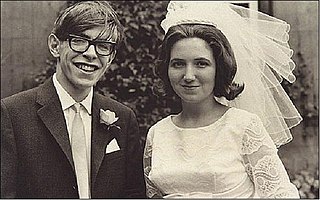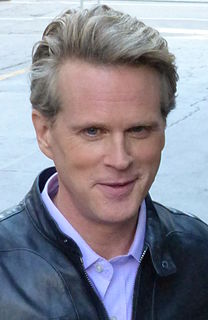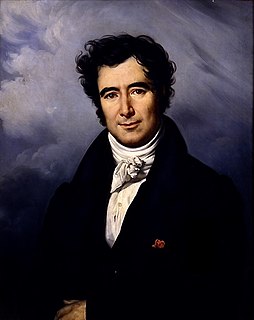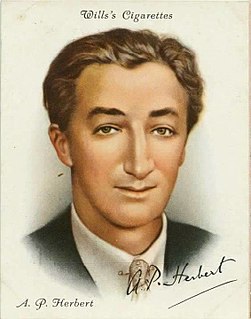A Quote by Megan Whalen Turner
Sounis had been thinking of Ambiades. "He would have been a better man under different circumstances." Gen looked at him. "True enough," he said. "But does a good man let his circumstances determine his character?
Related Quotes
The gas man came one day, and he said, 'What does your husband do?' so I told him, and he said, 'What's the use of that?' He had a point, but on the other hand, I firmly believed in Stephen and his brilliance. I encouraged him to popularise his science just because the gas man had been so insulting.
The mind of the greatest man on earth is not so independent of circumstances as not to feel inconvenienced by the merest buzzing noise about him; it does not need the report of a cannon to disturb his thoughts. The creaking of a vane or a pully is quite enough. Do not wonder that he reasons ill just now; a fly is buzzing by his ear; it is quite enough to unfit him for giving good counsel.
No man could bring himself to reveal his true character, and, above all, his true limitations as a citizen and a Christian, his true meannesses, his true imbecilities, to his friends, or even to his wife. Honest autobiography is therefore a contradiction in terms: the moment a man considers himself, even in petto, he tries to gild and fresco himself. Thus a man's wife, however realistic her view of him, always flatters him in the end, for the worst she sees in him is appreciably better, by the time she sees it, than what is actually there.
If man had written the Gospels - say Shakespeare or Eugene O'Neill - the story of the gospel would have been drastically different. They would have placed the prince in halls and palaces and had him walking among the great. They would have had him surrounded by the important and significant of the time. Potentates and kings would have been His companions. But how sweetly common was the real God-man; though He had inhabited all eternity, He had come down and was subject to the rising and the setting of the sun.
Roger Casement is an intriguing figure - humanitarian, Irish revolutionary, gay - and much had and would be written about him, there was something about his character as a conflicted man, an Irish Protestant who spent much of his time representing England in different African nations, a gay man who, true to the times, kept his sexual orientation to himself, that kept playing in my head. I read on and around him, but a historical figure is not a story - it's not even a character - so my story, the one that I would develop into Valiant Gentlemen, had yet to reveal itself.
There was a man that hated his footprints and his shadow, so one day he thought that if he ran fast enough, his footprints and shadow would not be able to follow him and then he never ever had to look at them again. He ran and he ran as fast as he could, but the shadow and the footprints had no problems keeping up to him. And he ran even faster and all of a sudden he fell dead to the ground. But if he been standing still there hadn't been any footprints and if he had been resting under a tree his shadow had been swallowed of the trees shadow.
I was blessed enough to meet Pope John Paul when I was about 19 or 20 years old in the Vatican; I had that privilege, .. My mother took me to visit him and I remember distinctly his incredible charisma and personal charm and his warmth and compassion. You felt it immediately the minute you met him, and that spirit I came away with, having met the man, is something that I've been constantly working on to infuse the character with, so that we can have his spirit and his love and his compassion, because that's really the essence of the man.
It would perhaps not be amiss to point out that he had always tried to be a good dog. He had tried to do all the things his MAN and his WOMAN, and most of all his BOY, had asked or expected of him. He would have died for them, if that had been required. He had never wanted to kill anybody. He had been struck by something, possibly destiny, or fate, or only a degenerative nerve disease called rabies. Free will was not a factor.
A man follows the path laid out for him. He does his duty to God and his King. He does what he must do, not what pleases him. God's truth, boy, what kind of world would this be if every man did what pleased him alone? Who would plough the fields and reap the harvest, if every man had the right to say, 'I don't want to do that.' In this world there is a place for every man, but every man must know his place.
The average man is what his environment and his superstitions have made him; and their function is to make him an ass. He can't add up three or four new circumstances together and perceive what they mean; it is beyond him. He is not capable of observing for himself; he has to get everything at second-hand. If what are miscalled the lower animals were as silly as man is, they would all perish from the earth in a year.
I was often humiliated to see men disputing for a piece of bread, just as animals might have done. My feelings on this subject have very much altered since I have been personally exposed to the tortures of hunger. I have discovered, in fact, that a man, whatever may have been his origin, his education, and his habits, is governed, under certain circumstances, much more by his stomach than by his intelligence and his heart.




































